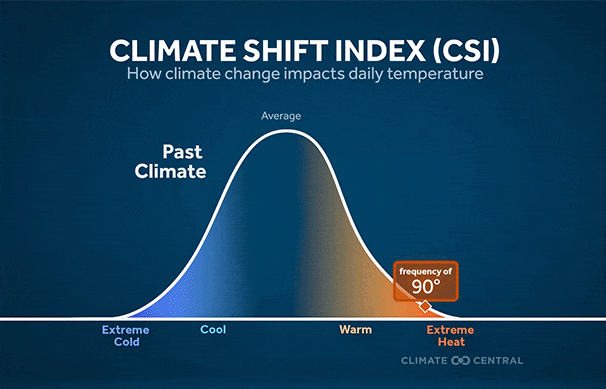Assessing and Addressing the Risks.
A look at global extreme heat over the past 12 months, how climate change has influenced this heat, and strategies to prevent increasingly frequent and intense heat from claiming lives worldwide.
What’s inside the report:
Ahead of Heat Action Day, this new report from scientists at World Weather Attribution, the Red Cross Red Crescent Climate Centre, and Climate Central assesses the influence of human-caused climate change on dangerous heat waves over the past 12 months (May 15, 2023 to May 15, 2024).
This report assesses the influence of human-caused climate change on dangerous heat waves over the past 12 months (May 15, 2023 to May 15, 2024). The period of analysis spans Earth’s hottest year on record (2023) and 11 consecutive months of record-breaking global temperatures (June 2023-April 2024). The report found that human-caused climate change is boosting dangerous extreme heat for billions, and making heat events longer and more likely.
Key findings from the report include:
- Over the 12-month period, 6.3 billion people (about 78% of the global population) experienced at least 31 days of extreme heat (hotter than 90% of temperatures observed in their local area over the 1991-2020 period) that was made at least two times more likely due to human-caused climate change.
- Over the last 12 months, human-caused climate change added an average of 26 days of extreme heat (on average, across all places in the world) than there would have been without a warmed planet. This report also demonstrates the crucial role of tracking and reporting on impacts in extreme heat assessment, and offers actionable solutions to heat risk.
- Using World Weather Attribution criteria, the study identified 76 extreme heat waves that span 90 different countries. These events put billions of people at risk, including in densely populated areas of South and East Asia, the Sahel, and South America.





